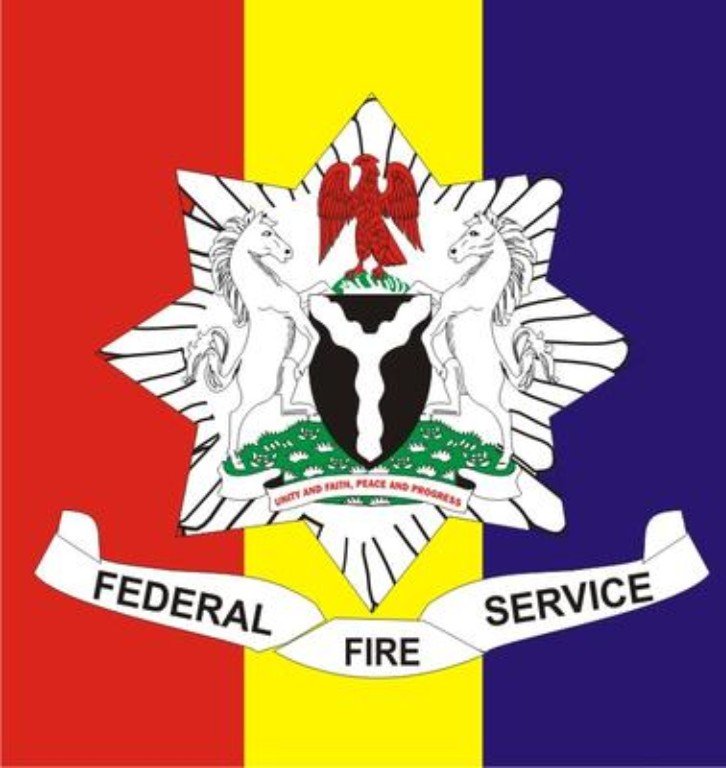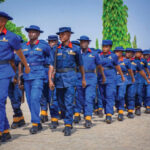Fire service, also known as fire brigade, is an organisation responsible for emergency response to fire outbreaks and certain other emergencies to avoid or minimise loss of lives and property. In Nigeria, both federal and state governments own fire service departments, but they continue to suffer neglect, leading to their inability to respond to emergency situations in a timely and effective manner.
With these shortcomings, these fire service agencies no longer enjoy the confidence of Nigerians. They are always late in arriving at disaster scenes, just as they lack modern tools and other equipment to discharge their functions. It is so bad that sometimes the firefighters can’t even save themselves in the course of their duty.
Most existing fire service agencies across the country can only boast of rustic trucks and outdated facilities, as well as demoralised workforce. That is why victims of fire outbreaks who make distress calls for assistance always get frustrated. On the rare occasions that the fire personnel surface at the scenes of infernos, they complain of either lack of water or fuel in their trucks and end up not fighting the fire; thus leaving victims in anguish. In such situations, the firemen get booed, beaten and chased away by crowds.
A typical scenario transpired in Ibadan, Oyo State, on November 7, 2023. The fire service responded to a distress call for a rescue operation in a private residence in the Akingbola area of Bodija in Ibadan North LGA. But midway into the operation, water finished in their truck.
- FUDMA abducted students to be released soon — VC
- 2030: FG adopts global agenda for medical rehabilitation
The fire service wrote: “It is true that some of our men were attacked and wounded. We responded immediately after we received a distress call, but the water finished during the operation. Unfortunately, our men were mobbed as they were preparing to leave the scene to get more water.
“They did not allow them to carry our hoses and they were mercilessly beaten in the presence of some members of Operation Burst who were meant to safeguard us. One of them is critically wounded and currently receiving medical attention in the hospital. It is so pathetic.”
Similar incidences have played out across the country.
The Controller General (CG) of the Federal Fire Service (FFS), Jaji Abdulganiyu, recently noted that the service saved property worth over N300bn from fire between January and June, 2023, nationwide but noted that monies allocated to the service in the last five years were hardly released: In 2018, N413.5m was allocated but only 343.5m was released to the service. In 2019, N473m was budgeted, N11.9bn in 2020 and N16.5bn in 2021. In 2022, N10.4bn was invested in infrastructure comprising 44 firefighting engines, 15 water tankers, 15 rapid intervention fire engines and 20 basic life support ambulances. According to the Ministry of Interior, N15.74bn was allocated in the 2023 budget.
As President Bola Ahmed Tinubu has given approval for the inclusion of the Service Rapid Intervention Vehicle in his motorcade, we urge him to also ensure that all firefighting equipment necessary to protect the masses in times of fire disaster are in good shape, functional and available at all times.
This is very important, especially as the harmattan season, which is characterised by dry and dusty winds, is already upon us. The season, occurring between November and March, or even earlier in some Northern states of Nigeria, usually comes with attendant consequences. Fire outbreaks also become prevalent at this time as a result of the dry winds, leading to loss of lives and property.
A fortnight ago, the famous Ladipo Plank Market in Lagos State was engulfed in fire, where over 351 shops were confirmed burnt with goods worth millions destroyed. The Potiskum market in Yobe State was also up in flames with 10 shops and grains worth about N50m burnt. A building in Offa LGA of Kwara State was also burnt with property worth N39.6m destroyed.
The use of candles by people to beat darkness in times of power outage is common despite the risks. People need to know the consequences of their actions and inactions and apply caution.
In places where the use of electrical appliances is common, people should exercise caution both at home and in public places such as markets, schools and hospitals. Electrical appliances should be switched off whenever they are not in use.
We call on the fire services across the country to take the lead in public education towards preventing fire outbreak. The services should also enforce fire safety regulations in public buildings, markets, office complexes, homes, among others.
The government at the local, state and federal levels should sensitise the public to take precautionary measures to avoid fire incidents. Disaster management and local authorities should enlighten the public on the handling of fire during this period. People should keep firefighting equipment such as fire extinguishers, smoke detectors and fire alarms in their homes. This will make the job of firefighters easier.
Governments, and even private organisations, now keep firefighting vehicles. There is a need to ensure that they are well-equipped to serve the purpose for which they were obtained. State governments should also increase funding allocations to their respective fire services. They should explore ways of funding them.
All relevant authorities must play their roles to check the incidents of fire outbreak or at least minimise the damage where and when it occurs. Our fire services must be positioned to work.

 Join Daily Trust WhatsApp Community For Quick Access To News and Happenings Around You.
Join Daily Trust WhatsApp Community For Quick Access To News and Happenings Around You.


